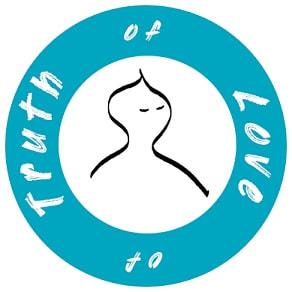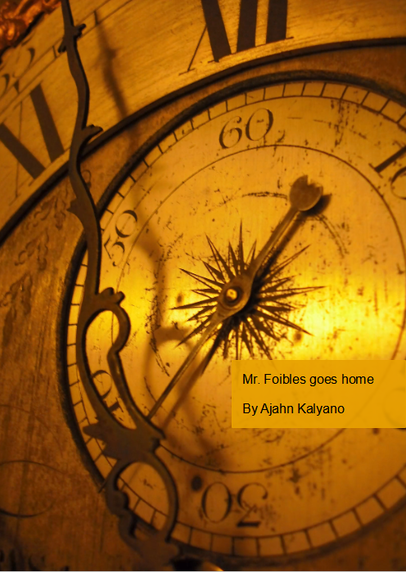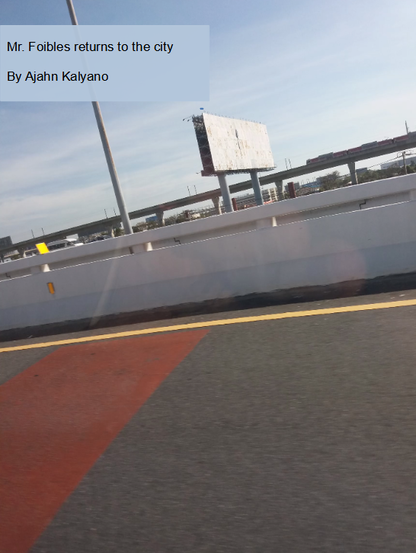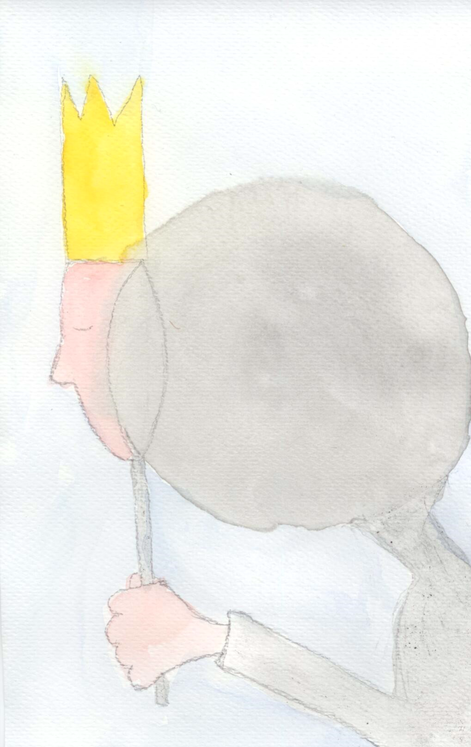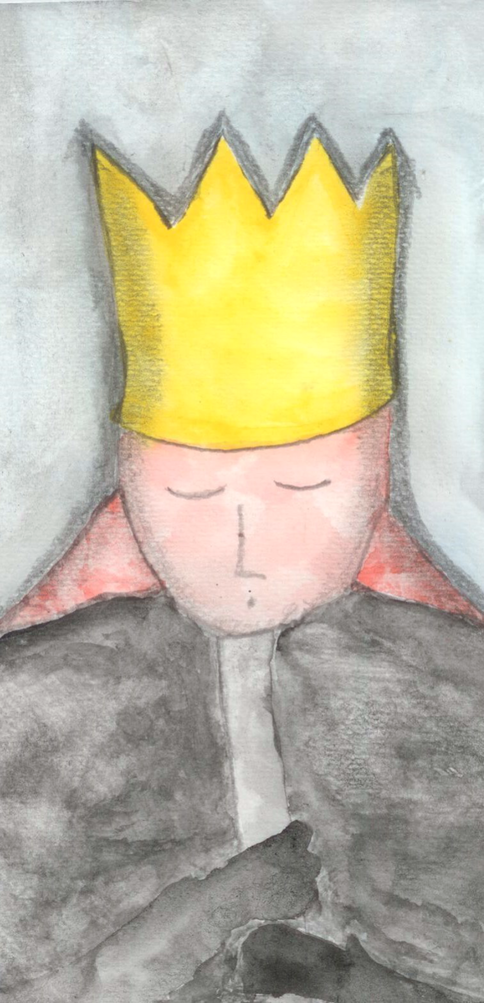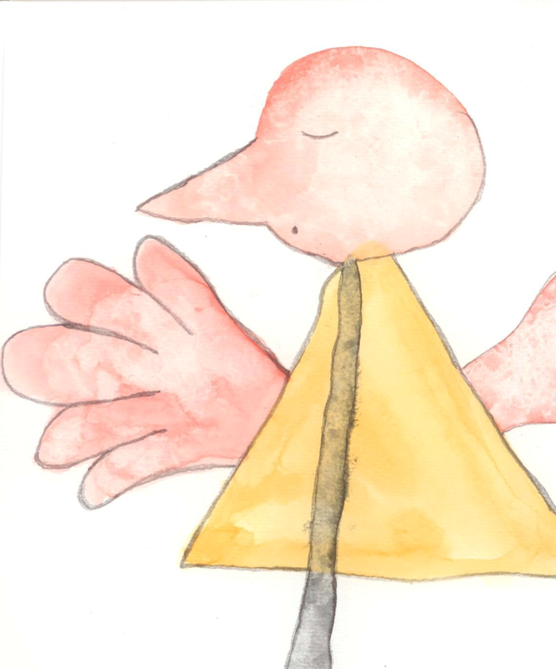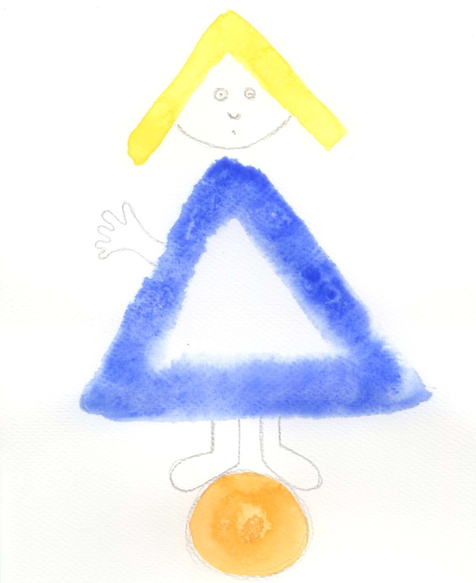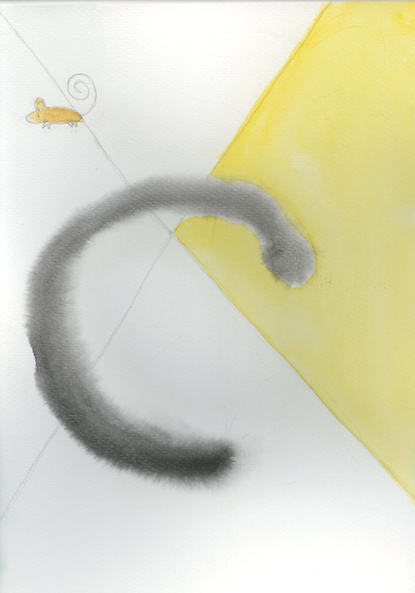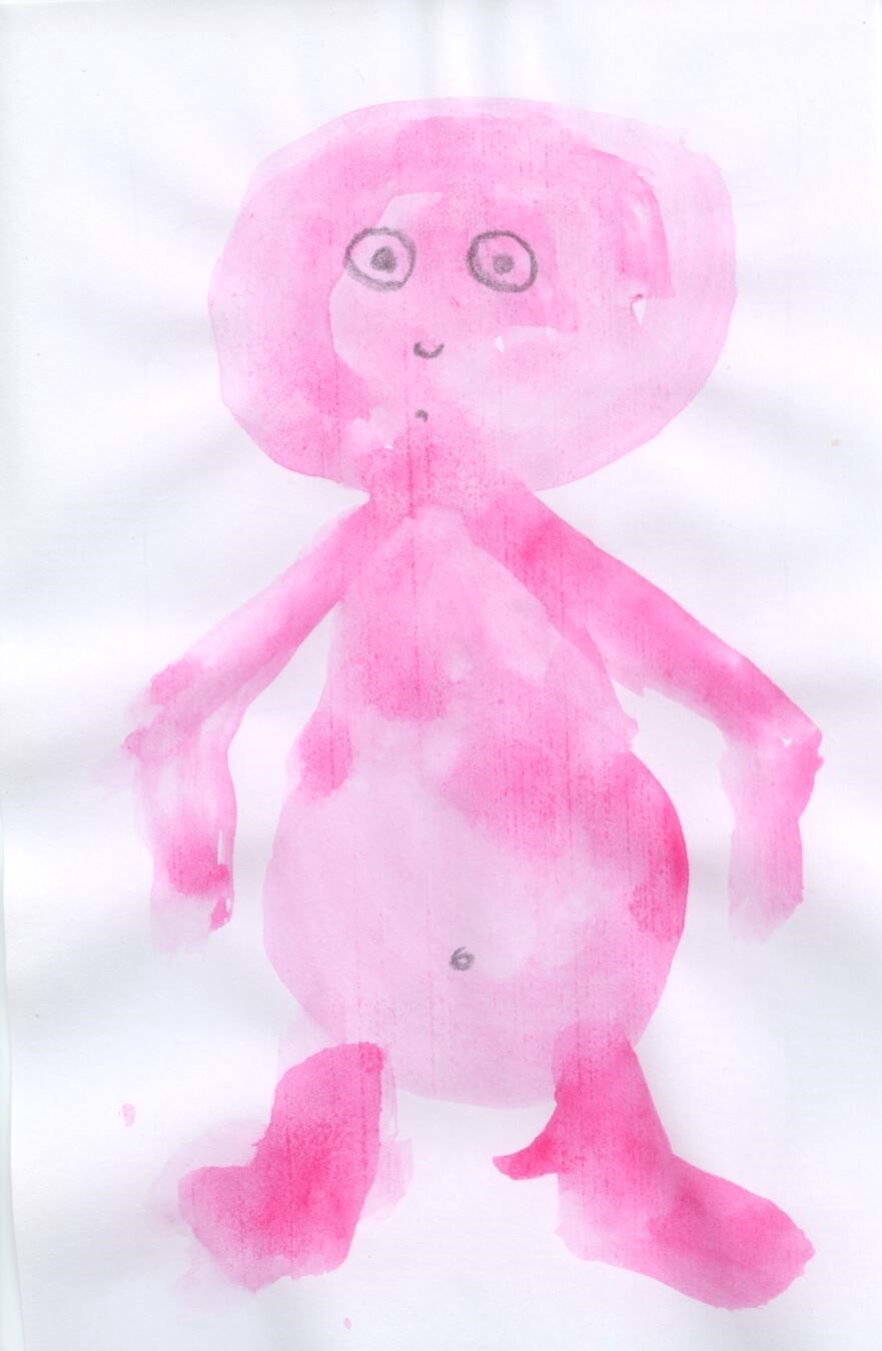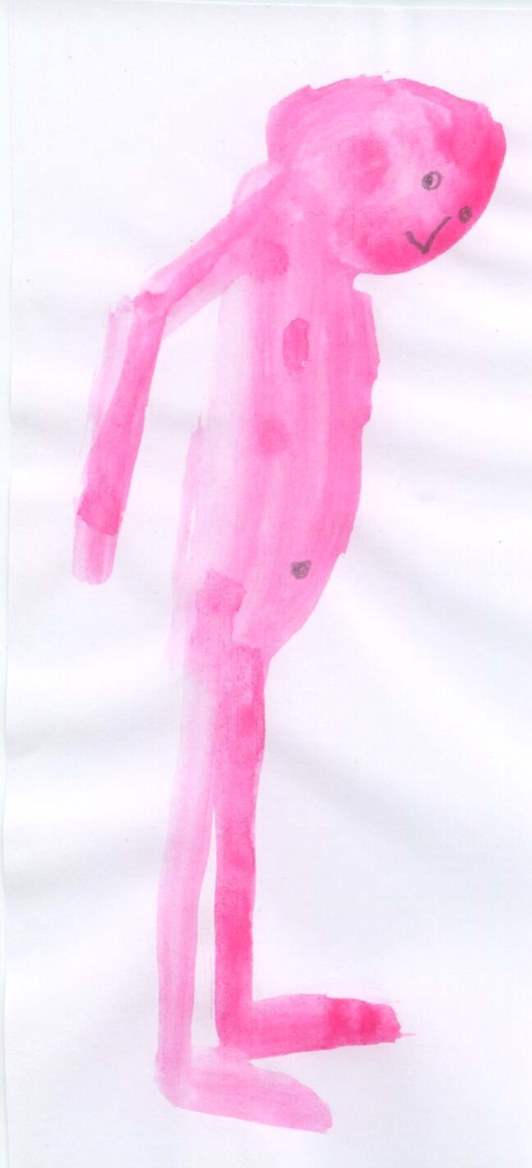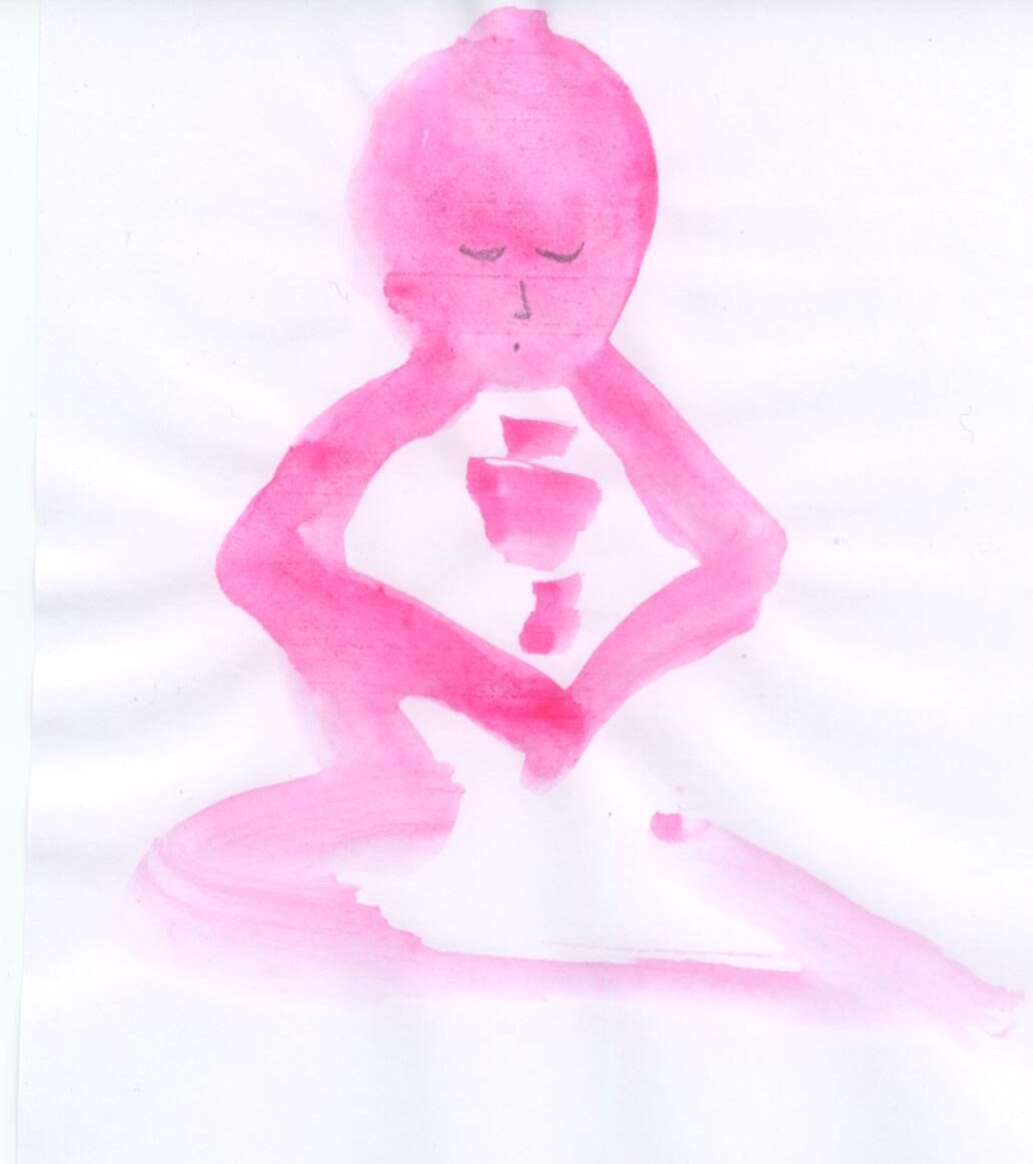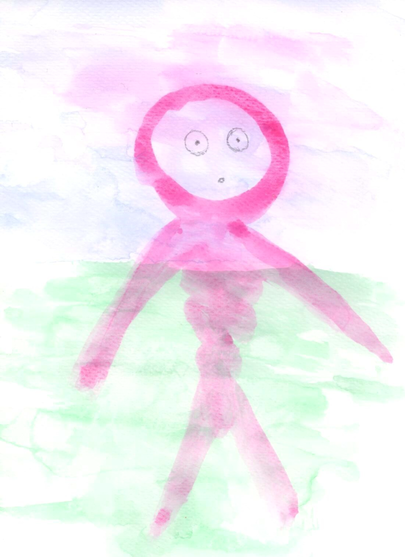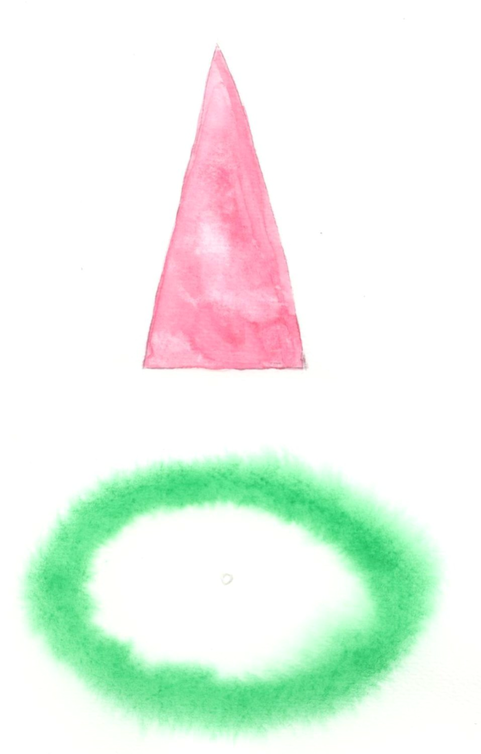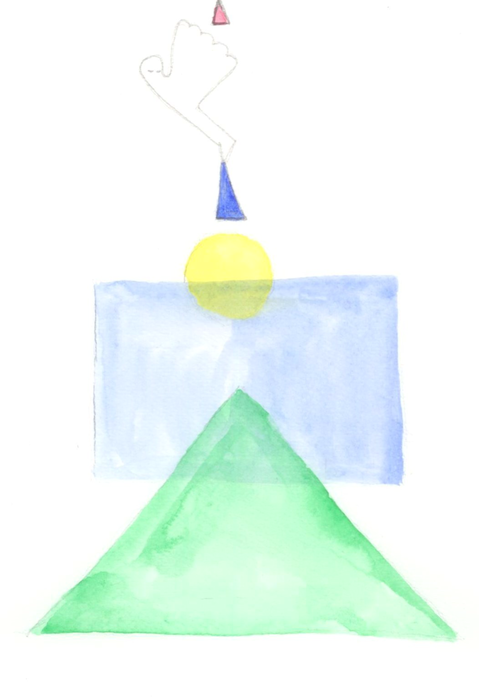|
Once I sought the love of the young lady Burning consumed and consuming Now I seek the love of old men Cool saved in the grave A different kind of love There was an old grandmother clock in Mr. Foibles office. He had brought it to remind him of home. It was getting late in the afternoon now and Mr. Foibles was a little tired. The ticking of the clock began to call him home. There were so many memories in that ticking sound it remained in the back of his mind a bit like an inner prayer but also a reminder of time passing. When his day at the office came to its close he knew that he would bring his whole life there gently to a close some day fairly soon and that his wish was to turn to living and working in nature with his family. At home he had his study, this could be his office. This is where the revolution must begin, he thought. It was time for man to leave the cities. The cities had estranged us from our bodies and become a deluded mental realm. In the forests and the pastures we must begin again to gather and to trust our neighbour. Symbolically he took the pictures of his family from his desk and put them in his briefcase. They don't belong here, he thought. Still the clock was ticking in his mind, bringing a new rhythm and urgency to his heart. As he left the office. Mr. Baltic, the security man, nodded to him as he approached the main door. Mr. Foibles bid him farewell as usual, “Goodnight, my friend,” he said. There was no reply, as usual from Mr. Baltic. His little room was dark inside. The pictures from the security screens flashed across his face. His eyes were sad and vacant. Mr. Foibles left feeling a little melancholy wondering how ever he may reach poor Mr. Baltic. His home was a short drive away in the suburbs. When his key entered the lock of his front door he realised he had been so lost in thought he had hardly noticed the journey so much was his sense of time predominant in his mind. He felt unsettled. His wife greeted him at the door with the customary peck on the cheek and update on dinner. She returned to the kitchen and Mr. Foibles headed for his armchair. Alone in the living room his mind was flooded with the past. His attention turned to his old grandfather clock which had been in the family for generations. As usual it stood silent, its mechanism ceased up long ago. The tick-tock of his mind fell silent and his time-bound automatic mind fell silent too. Time stood still. The old and gold grandfather clock remained like an aura in his mind, catching the light this way and that, still and mellow. He cast this new light around the room, at the old family photographs, the familiar paintings on the wall, the souvenirs from many a journey. These were all the things that had made home for Mr. Foibles. He could still remember as he placed his mind on each in turn and thought about it but they no longer called to him from the walls and his home lay now in the heart. His wife served dinner. It was usual for Mr. Foibles to be quiet and pre-occupied on his return home. She knew to give him time and then gently enquire as to his day. “I love you, dear.” said Mr. Foibles. “I love you too dear,” she said and placed her hand on his. “I shall retire,” said Mr. Foibles. “Very well,” she said, thinking that he would retire to bed. Mr. Foibles did not explain his plans but returned to his armchair. His funny old head sat on his shoulders like a golden pumpkin on the shelf of his garden shed, rocking gently as life thumped by. His silence hung so softly in the air that summer evening that life simply came and went. He smoked his pipe and looked out of the window. There was a little forest behind the house. Mr. Foibles in his heart was at the cabin and his house had become a cabin too. The office, like a dream, faded in his mind. He nodded off a little and dreamt that he flew from the city with a chain of children holding his hands. He was so happy. He was home and there was a new peace in the air, as still as glass, as dusk approached. The silence was golden. His family had gathered at the end of the day. A golden sunset poured into the room like an angel. His dear wife and three children sat in their accustomed places and Mr. Foibles spoke in a way that he had never spoken before: “Please listen, my dears. I have something to say to you all. As I hope you all know I love you all very dearly, like my own life. I have realised something that I wish to share with you as best I can. For much of my life, as you know, I have lived in my thoughts and I realise now the extent to which I had become estranged from my own body. This last weekend at grandpa's cabin that changed and I discovered, in a very natural way, a truth, a love, a joy and a sense of freedom in the body I had never discovered before. At the office today I realised I had not been alone. All around the city I saw people lost in thought and unhappy. We are so lucky here that we have the forest to return to but what I realised this weekend is that the body is part of nature too. We belong there and not in the city. This realisation has changed my life. I shall retire from the office and work from home. I will be here all the more to love you and keep you safe. I will grow pumpkins and spinach and sing lullabies to the silly city. We will not be so rich but I believe we will be happy.” Thus spoke Mr. Foibles. And this was just the beginning of a new life and love for the world. For the world would come to love Mr. Foibles, in the golden silence and peace of history, just as Mr. Foibles had come to love the world. And Mr. Foibles was beginning to wonder about the future of the cities, “It’s an unnatural way to live, I get the feeling something could go terribly wrong,” he thought. THE END Video versionThe Mr. Foibles TrilogyMr. Foibles woke on Monday morning to find his life quickly rushing like blood to his head. But it was a funny new head, his whirling habits newly crowned with a mess of white hair unwashed and uncombed in the faint dawn light. Under the sway of habit his body prepared itself to stand up and go to the bathroom. He was literally getting carried away. I will get ready in my own good time, he thought. He triumphantly messed his hair up a little more. He walked his body outside. The sun was rising above the forested mountains. The air was crisp and clear. This was a brand new day in the world, never seen before. He felt so alive, so real. Breathing the cool air he felt it right down into his lungs, breathing out he returned the air to the sky. His feet, still in his tatty old woolly slippers, were as if rooted to the earth. From the crown of his head to the soles of his feet he was full of love. Turning back indoors, through a gentle application of restraint, his mind offered patience to his morning habits. He washed and modestly covered the body in the usual attire fitting to his role and purpose. The socks looked a bit pointless without his shoes, he laughed as his head hung down. Looking at his hairy old legs they appeared to be upside down as if the floor were suddenly the ceiling, he giggled. Life seemed so absurd. He stood in front of the mirror and tried to feel important about his smooth grey suit to make up for the fact that he no longer felt important in it. As his finishing touch he chose a light blue silk tie as cool and crisp as the morning light. Its sheen was a reminder of the inner light, the truth of the body that shone through, cool and bright. Both literally and metaphorically the time was now right. He left the cabin for the city. As he travelled his usual route to work he saw everything in a new light. He drove a little slower than usual to take in the scene. The car was like an extension to his body, one vehicle inside another. As he paused at the traffic lights the sun shone through the windscreen and warmed his hands that were beginning to look their age. His heart beat quickened a little and he gazed back at the sky as though waiting for heaven to come in cool blue pyjamas. The green light came, he would go on. The farmland around gave way to suburbs swarming with children on their way to school. The little ones bounced their bodies along the street like rubber balls. The teenagers found a strength that as yet tensed under the gaze of others. The adults walked responsibly. The morning world whirled on, driven by the invisible assumptions that formed the day ahead. His heart was an open question. Through the outskirts there were the highs and lows of the bridges and tunnels. Underground life was dark and driven, he thought. There was an order and cleanliness to it all that aspired to style and meaning. In awkward spaces a sculpture would be thoughtfully added to bring the scene together and make it look as though it was all meant to be just the way that it was. But today, in his playful mind, the office blocks looked like massive fridges or kitchen units making everything else look tiny, of no consequence. He was happy to be a nobody. Then another underpass and this time, without thought or judgement, his mind was calmed by the simple grey concrete and the lights reminded him of Christmas. Approaching the city centre he drove over the brow of the hill and drew breath as a brand new city was laid out before him. It looked like a toy. In the bright morning sun it looked like plastic. Holding the steering wheel he played with his new toy as if he held this precious human world right there in the dexterous warmth of his hairy old hands. He held on but not too tight and the touch of his mind was lucid and bright. Seeing fellow bodies abroad in the brilliant morning light his heart softened and he took every care. He slowed and gestured elegantly for pedestrians to pass before him. I some there was pride in their wealthy clothes and groomed hair. He gently mocked their vanity with his gestures. But these were genuinely good people. It was not just that they paid their taxes and loved their families. The children were happy for their life was full of promise, like gifts wrapped with ribbons in the sky. They held the innocence and the hope of the adults. It was true, there was hope. I wonder if the sky likes being blue, he thought. It was harder to see past the glittering act or the hard fact to the bodies that walked and talked, sold and bought, but the bodies were there as a purpose as soft as putty. As crude and rude as on the farm they were a deeper perspective entering on the scene as real as the feel of it all. Yet all the body's needs were displayed in anonymous ways and everything duly taken for granted. The shop was around the corner, the health centre was down the street and nobody needed anybody in particular. People could get the impression they were self-reliant and in control. On the smartphones and in the shop windows the halogen lights outshone the light of the spirit, god of the day and protector of the night when nature failed to shine the way. And dreams ran in the nerves and the wires the same until the sinews of man jerked and this was life in the false and their false life and death. It was life to the banks and the advertising, the insurance companies and the meaningless sport. And security lay only in facts, in numbers half remembered by a mind divorced from the body that was as tired as it was wired and somehow wired into the city. The city of a billion buttons. Hearts would howl at night, he thought, as the numbers slipped out of view, dreams of the future becoming just a dream. Tears came to his eyes. Yet the gypsy beggar by contrast was as real as his hunger. He sat in the doorway on a sheet of cardboard. Most passers-by were modest in their offerings, proper citizens knew how to deal with this situation and thought there was no need to be touched or to touch that reality. Knowing not that such a reality could remain, beyond the facts, to guard our sleep. But time would tell. He arrived a little late at the office. Miss Springles at reception was flustered and jabbering in rapid lists. He took her hand, warm and damp, squeezed it with a gentle gesture of reassurance and smiled. For a moment time stood still as their eyes met. She paused. “See, there is time,” he said. And there was time. Measured in the new posture and composure of Mr. Foibles there was a time beyond time. His eyes sat in their sockets like a child's prize marbles. Here was the insistently real in the land of numbers. His real work was done. Now, with true love, he could play with the world. He went to the toilet down the corridor. The faint smell of urine somehow tickled him. He entered an empty cubicle and locked the door. The man in the next cubicle was whistling some old song. It echoed strongly in the humid air. Mr. Foibles was trying to recognise the tune but for a moment he imagined that he was whistling through his penis. He shook uncontrollably as he tried not to laugh out load. If he could do such a thing he could be famous but how, in all decency, would he present himself, he thought? The toilet became a circus of feats and freaks and danced in his blissful mind. The light of his heart flashed free and white, mirrored in gleaming porcelain. He returned to his office, trotting under a shower of giggles. He sat at this desk and as he settled again into his chair the worry that was his office habit dragged at his heart. He felt a little heavy and his mood sank with his frail old body. His body was disappearing into the plush upholstery. He felt a little helpless. He wanted so much to share the joy and sense of freedom of the last few days but who would listen. Would people just think he was crazy? He stared at the computer on his desk. The light from the screen shone into his face. The light felt so false, like the neon lights of the subway it seemed to emerge from darkness like a lie. The darker truth of the city was beginning to sink in as he sank even further into his leather chair. He put his old hands together and prayed... Please help me Lord. Oh, how sleep has stolen the light, the sleep of thought. Yet how I am driven to that thought to deal with the desires of others. For it seems that the spirit is becoming lost to modern man. The senses it seems cannot help but believe the bright screen - brighter than the heart of modern man and as clean as heaven the bright screen sells the pleasures of the world so that lost in feeling and the hope of feeling is the spirit. And lost am I without the light of the heart in the eyes of my brothers. Please help me Lord. There on the ground shines the light of the spirit. There on the ground of the body where no man’s eyes find their rest. There where the heart is first composed. And furthermore when the heart sees the suffering of the world it can be free and yet caught in the light of the bright screen that suffering seems as dark as eternal night and as death to the life of desire. Only when what was dark becomes light does true life, the life of the spirit, truly enter the heart of man and yet it seems that even the light of being and of space will be as the light of the bright screen in the dreams of the modern man. And heaven will be but a movie in the heart of man. Before the bright screen the heavy breath churns the world around and the storm of dreams is never still, the world of the mind dances to its tune and is a slave to its tides and reality is its deadliest foe. Are the spasms of passion to be the only life they shall know? Please help me Lord. Then Mr. Foibles came to his senses. No, I shall not grieve for the world, he thought. But should I hide among the beetles and the dragonflies and appease the reflex man with little white lies? For all alone is there is only danger and would I best remain a stranger to the reflex man? There was a knock on the door he knew very well. His secretary, Mrs. Tweedsome, popped her head around the door. “Can I get you anything?” She asked. She knew him well. She had seen him many times in reflective mood and knew not to disturb. Mr. Foibles smiled and shook his head and she disappeared. He was a little relieved. It seemed she hadn't noticed anything different about him. Despite his experiences he must have seemed normal enough. She was so kind and had been so loyal to him over the years. He would take her children to the ice cream parlour around the corner next time they turned up a little early from school, he thought. He stood and gazed out of the window at the city below. The summer breeze gently caressed his wrinkly old face. No, I am not alone. We are all together, one body, one life, he thought. He remembered William Blake: “God appears and God is light to those who dwell in realms of night but does a human form display to those who dwell in realms of day.” He sat looking at the pictures of his family on his desk. We can all be happy together whatever our reason and time shall tell. Let time be the teacher. I must be patient thought Mr. Foibles. I will say nothing about my weekend unless I am asked, he thought. The sun blazed through the window of his office, he could feel its warmth on the back of his head. The light in his eyes was so bright it seemed for a moment as though it shone right through. The taste of freedom was so sweet. As a gesture and a reminder he would buy cakes for everyone in the office and offer them himself every day from now on. It was just the beginning of a new life of giving. Mr. Foibles was full of joy. With his mind clear and happy he got down to his work. He played with numbers and words with his head and his hands, abiding in his new life, inside. TO BE CONTINUED... Video versionThe Mr. Foibles Trilogy *** The modern monk can be a really sad story. They can be worse than lay-people who at least have to work to earn a living. The worst modern monks just sit with their smartphones all day and fill up their brains with mp3-talks so that they can say impressing things to their supporters, talking like the great Ajahns, but having done none of the practice themselves. *** As monks we have to be so careful not to become “puppet-monastics” – there will be a lot of pressure, from various sources, in that direction. The whole thing can just end up being about wearing the right thing and saying the right thing, to build up your “career”. *** he was looking for a home where he need no longer roam somewhere at the end of Sunset Lane he was travelling far and life was weary on Sunset Lane he kept his eyes on the road as he carried his load on Sunset Lane but that night the mist was mysteriously lifting in the silence of his tired old mind there on Sunset Lane and revealed was a lane of endings a lane where he was always arriving a lane where his heart was always at home for it was always sunset on Sunset Lane The traditional spiritual path is virtue, then concentration, then wisdom. We begin with the ‘mundane’ path of virtue. We are learning first of all to tune in to our minds with a moral intention. Then, as we empty out the mind through concentration, we see that it becomes more and more wholesome. In this way we learn for ourselves, in our own experience, that everything that comes to interfere with our concentration during meditation, everything that arises automatically in the mind, is unwholesome. At this point there is no longer a need to discriminate on a moral basis.
Having seen this, we can add contemplation to concentration as a way to let go of all these states and to empty out the mind. Then we are not dependent upon concentration practise to keep the mind clear. Once we have developed, through contemplation, the stable perception of the automatic mind as unwholesome, the mind will become automatically self-clearing. Then we can apply our wholesome minds fully to other things. Developing wholesome perceptions of the world will then cut off at the root any tendency for the unwholesome to arise. I hope this explains the connection between the two kinds of right mindfulness in the Buddha’s teaching – mundane and supramundane. Mundane right mindfulness is to see the wholesome or unwholesome nature of things, it is a moral discrimination. Supramundane right mindfulness contemplates the impermanence, unsatisfactoriness and non-self nature of things. Many people who become interested in meditation, wanting deep, profound spiritual experiences, find they do not have the opportunity to practice for the many hours a day required to achieve these kinds of results. Some resign themselves to a lesser goal, or try to redefine enlightenment as something a little easier to achieve. Others look for a spiritual hack or short cut. In a previous article I pointed out how dangerous this can be. But you could say that there is an ancient and well-trodden, well defined spiritual short cut, we might call it the wisdom path. This can take you into the deepest states without you having to do long hours of concentration meditation. Just a little bit of calm will do. The wisdom path is one in which we learn to see the world in a different way, one that leads to letting go rather than the clinging to things which is the reality of the reactive and untrained mind. Wisdom is a way of seeing rather than a way of thinking so not a lot of intellectual study is required. The traditional way to learn it is to train with a teacher who has wisdom and naturally and gradually pick up their attitude and way of seeing over time. This is the most natural way to learn. But if this way is so much quicker then why isn't everyone trying it? The central contemplation is of the impermanence of everything we experience. So this is not complicated but it can take a while for it to really sink in. Nevertheless, the reality is that through such contemplation one is going against the stream of the modern materialist view completely. The student in the modern world can be taken gradually into a whole new relationship with the world around him or her, seeing the ultimate pointlessness of it all. Over time the shift can be very radical and the students will need to be willing to shift their life-style to fit the new view in order to progress. We have to act on the wisdom we develop for it to become established in us and not cause a conflict in the mind. So this path is not without sacrifice, but in the longer term this is the sacrifice of a lesser happiness for a greater one. In Asia, Buddhist Monasteries are there as a place to go, a refuge for those who begin to feel disenchanted with the fleeting nature of the pleasures of life – those who, perhaps like Mick Jagger, ‘can't get no satisfaction’. One who sees impermanence will be inclined to change the priorities in life and abandon the worldly material gains which they at that point can see as not lasting; but this can also be a gradual path of simplifying life, one step at a time. This practice also combines very naturally with a practice of calming meditation. So as the student lets go, they find more time and space for meditation and this enhances their ability to see in a wise way, with a calm mind. Meditation becomes the way of smoothing out this path, calming down into a new life-style. And the results of this practice are not like the fleeting peace gained on a pleasant retreat but last for the rest of your life. In fact, if you believe in the Buddhist view of rebirth, what is gained of wisdom will follow you into your next life also – such an indelible imprint is made on the mind. What this path requires most of all is the courage to take a very honest look at life. What lies in the way is really only our helpless addictions to the pleasures of the senses and our wish to hang onto a dream that sooner or later is going to let us down. Mr. Façade was a peculiar bloke Inside he was just made of smoke Rising from the raging fire Of his designer desire His never ending task Was to hang on to his mask Poor Mr. Façade One day, going for his designer stroll He met Mr. Giving, who in contrast to him, had perfect self-control Mr. Façade was intrigued. ‘I don’t wish to take your time,’ said Mr. Façade ‘You cannot take my time I am offering it to you,’ said Mr. Giving and, little did he know, but all would be well for Mr. Giving was as clear as a bell “little Miss Triangle can balance on the sun just for fun on Thursdays in the magic mind” said Mr. Giving “and if the mind turns nasty like an abstract cat the mouse can escape without the aid of a single fact just by being real, naked to the world, and not just a silly act” “Really, naked?” asked Mr. Façade ('the messy body of the maybe baby feeling very silly looking down at that funny little willy?' thought Mr. Façade 'am I going a bit crazy here?' wondered Mr. Façade) “No, to just be as real as how you feel that is being naked to the world and it is a return to the wonder of the baby here is no need to be the body there are symbols where mind and matter meet there are stone circles marking the mysteries of the past there are monuments made of poems and prayers so that the truth will last” said Mr. Giving Mr. Giving was happy to see that Mr. Façade was smiling, pleasantly mystified. This would be the beginning of a long and faithful friendship on the path to truth. Establishing mindfulness of the body very calmly and fully has wide-ranging, transformative effects on the mind. Below is a set of tables in which these effects are listed. The state and dynamics of the different aspects of the mind are described with the body relatively absent (in the normal case of the untrained mind) opposite the case where the body is fully present in the mind (when mindfulness of the body is very clearly established). Each row in the tables is a progression from the previous one representing mindfulness practise (the domain in the left column) or its fruit (the right column) going deeper and deeper.
There is a famous story in the Arab world about how goodness can turn to bad and badness to good. A very rich woman marries a very good man, approved of by her rich parents. He is the perfect caring and dutiful husband. After a few years the woman tires of him, however, he is no fun. She leaves him for another man who is rather wild and sensual. Then the lady has a terrible accident in which she becomes both deaf and blind. What then ensues is a shocking tale of how she is taken on a journey in which her first lover, very angry at having been deserted, seeks his revenge.
Throughout the awful life-threatening ordeal that ensues her life is heroically defended by her second lover, the wild party animal. Throughout this ordeal she, being unable to recognize who is doing what, assumes that it is the wild man who is torturing her and the good man who is trying to save her when, in fact, the reality is the other way around. This story has a lot to teach us as practitioners of the Dhamma. We can assume that what we see as the good side of us or of others is wholly good and beyond evil. Or we can judge our bad side too harshly, assume that it is wholly bad and cannot be turned around. We can be very black-and-white about states of mind or form fixed views. The Buddha encourages us not to be blind like the lady in the story but to remain vigilant and not to attach to a view, to follow goodness and to turn away from evil wherever we might find it. |
Categories
All
|
Open The Sky - Reflective and creative work by Ajahn Kalyano
